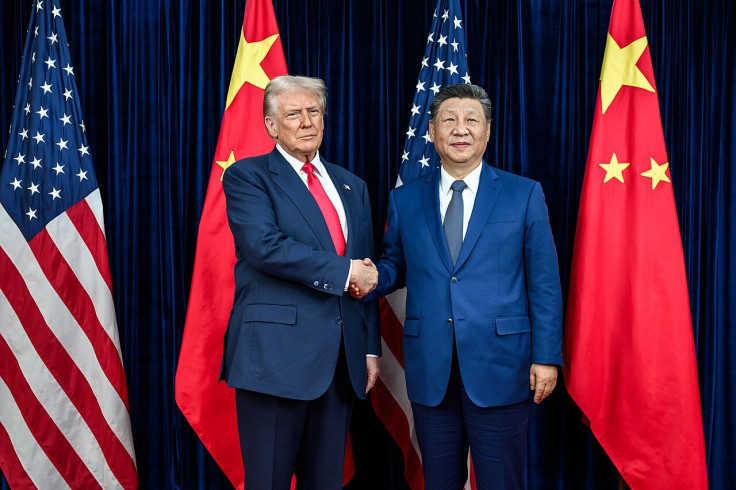Trump and Xi Strike New Deal That Shifts Global Markets: Is the US-China Trade War Finally Cooling?
Treasury Secretary Scott Bessent admitted that US won't 'decouple' from China.

The United States and China have reached a landmark trade agreement that could ease months of economic tension between the world's two largest economies.
The deal was announced after a high-level meeting between US President Donald Trump and Chinese President Xi Jinping in South Korea this week. It contains commitments to resume chip exports, expand soybean purchases, and relax restrictions on critical commodities.
The announcement was confirmed by the White House in an official fact sheet, signalling a potential thaw in a trade war that has unsettled global markets since Trump took office earlier this year.
Easing the Chip Export Ban
The deal revolves around China's plan to ease a ban on exporting automotive computer chips, which are essential parts for the worldwide automobile sector.
The ban sparked concerns about further supply chain interruptions, particularly after carmakers Volvo, Volkswagen, and Jaguar Land Rover issued warnings about possible factory closures because of shortages.
Nexperia, a Chinese-owned company with its headquarters in the Netherlands, had been caught in the crossfire of the restrictions. About 70% of its chips, which are produced in Europe, are sent to China for finalisation before being exported all over the world.
Under the new agreement, Beijing has pledged to 'take appropriate measures to ensure the resumption of trade from Nexperia's facilities in China,' according to the White House.
Although there are still longer-term supply risks, industry observers say the move could reduce immediate production pressures in the global automotive sector.
Reopening Markets to US Farmers
The agreement also includes a significant boost for American farmers. China has committed to purchasing 12 million metric tons (MMT) of US soybeans by the end of 2025, with annual imports of 25 million MMT planned for each of the following three years. Beijing will also resume purchases of sorghum and hardwood logs.
The resumption of US soybean imports represents a major reversal of China's earlier stance. When Beijing halted purchases earlier this year, it cut off American farmers from their largest export market. The Trump administration responded by reviving a farmer bailout program to lessen the impact on the economy.
Agricultural economists say the restored trade flows will bring welcome relief to rural communities hit hard by tariff volatility.
Rare Earths and Fentanyl Controls
China has also agreed to lift its export restrictions on rare earth minerals, which are necessary for the production of vehicles, planes, and defence systems, for a period of one year. For Western industries that rely significantly on these resources, the delay is anticipated to stabilise supply and prices.
The White House also confirmed that Washington will lower tariffs related to fentanyl imports, in exchange for Beijing taking 'significant measures' to curb the export of precursor chemicals used in producing the synthetic opioid.
In the US, fentanyl continues to be the most common cause of opioid-related fatalities, and Beijing has been under constant pressure from Washington to strengthen control over its chemical sector.
Strategic Truce Amid Ongoing Tensions
Although the agreement signals a shift toward cooperation, US officials have warned that challenges remain. While Washington does not intend to 'decouple' from China, Treasury Secretary Scott Bessent told CNN that Beijing has 'shown itself to be an unreliable partner.'
Trump described the discussions with Xi as 'amazing.' Meanwhile, China's foreign ministry said both leaders had reached a 'consensus to resolve major trade issues.'
The resumption of chip exports, soybean purchases, and rare earth supplies will bring short-term stability to global markets, but neither side has addressed the structural rifts underpinning the trade conflict.
While the deal has undoubtedly eased immediate trade tensions, it seems more like a strategic suspension than a permanent truce.
Both sides are acting out of strategic necessity rather than reconciliation since Beijing needs stable export routes to steady its slowing economy, while Washington wants to alleviate the effects of inflation and unstable supply chains.
© Copyright IBTimes 2025. All rights reserved.





















